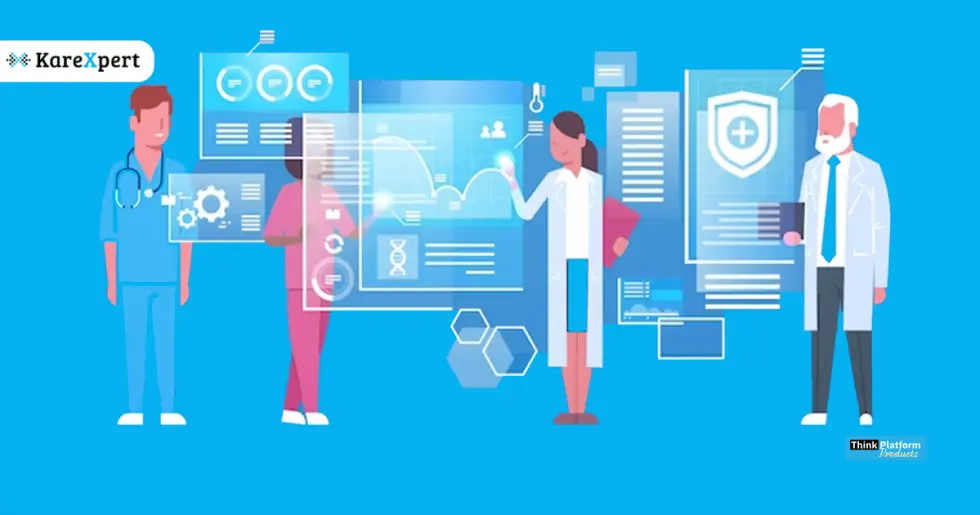The Future of EMR Software and the Healthcare Industry

Electronic Medical Records (EMR) software has already made a significant impact on the healthcare industry, streamlining processes, improving patient care, and enhancing efficiency. As technology continues to advance, the future of EMR software holds even more promise. This article explores the future of software for electronic medical records and its potential to revolutionize the healthcare industry.
Interoperability and Data Exchange
– The future of EMR software lies in interoperability, enabling seamless data exchange and integration across different systems and healthcare organizations.
– Interoperable EMR software will allow healthcare providers to access comprehensive patient records, regardless of the EMR system used, improving care coordination and reducing duplication of tests and procedures.
– Integration with external systems, such as laboratories, pharmacies, and imaging centers, will facilitate real-time data sharing, enhancing efficiency and reducing errors.
Artificial Intelligence (AI) and Machine Learning
– AI and machine learning will play a crucial role in the future of software for electronic medical records, enabling advanced data analysis, predictive modeling, and personalized treatment recommendations.
– AI algorithms can analyze large datasets, identify patterns, and generate insights that can assist healthcare providers in making accurate diagnoses and treatment decisions.
– Machine learning capabilities in EMR software will continuously learn and improve from data, leading to more accurate clinical decision support systems and improved patient outcomes.
Patient Engagement and Empowerment
– The future of healthcare is patient-centric, and EMR software will play a vital role in enhancing patient engagement and empowerment.
– EMR systems will offer patient portals and mobile applications that allow patients to access their medical records, schedule appointments, communicate with healthcare providers, and actively participate in their own care.
– Patient-generated data from wearable devices and remote monitoring technologies will be integrated into EMR software, enabling healthcare providers to monitor patients remotely and provide personalized care.
Telemedicine and Remote Care
– The COVID-19 pandemic has accelerated the adoption of telemedicine, and the future of EMR software will continue to support remote care.
– EMR systems will integrate with telemedicine platforms, allowing healthcare providers to conduct virtual consultations, share medical records, and provide remote care services.
– Telemedicine capabilities in EMR software will improve access to healthcare, particularly for patients in rural or underserved areas, and enhance continuity of care.
Advanced Analytics and Population Health Management
– EMR software will continue to evolve in terms of data analytics capabilities, enabling population health management and proactive interventions.
– Advanced analytics tools will allow healthcare organizations to analyze population health data, identify health trends, and implement preventive measures to improve public health outcomes.
– EMR systems will integrate with public health databases and registries, facilitating data exchange and supporting disease surveillance and outbreak management.
Enhanced Data Security and Privacy
– As the volume of electronic health records increases, ensuring data security and privacy will be paramount.
– The future of EMR software will incorporate robust security measures, including encryption, access controls, and audit trails, to protect patient information from unauthorized access or breaches.
– Compliance with data protection regulations, such as HIPAA, will be a top priority for EMR software developers and healthcare organizations.
Blockchain Technology
– Blockchain technology has the potential to revolutionize the future of EMR software by providing secure and tamper-proof data storage and exchange.
– Blockchain can enhance data integrity, privacy, and security, allowing patients to have more control over their health information and enabling secure data sharing among healthcare providers.
– The use of blockchain in software for electronic medical record can also streamline billing and insurance processes, reducing administrative burdens and improving efficiency.
The future of EMR software holds tremendous potential for transforming the healthcare industry. Interoperability, AI and machine learning, patient engagement, telemedicine, advanced analytics, data security, and blockchain technology are key factors that will shape the future of EMR software.
By fostering interoperability and seamless data exchange, EMR software will facilitate better care coordination, reduce duplication of tests, and improve patient outcomes. AI and machine learning algorithms will enable advanced data analysis, personalized treatment recommendations, and predictive modeling, enhancing clinical decision-making and improving patient care.
Patient engagement will be a significant focus, with EMR systems offering patient portals and mobile applications for easy access to medical records, appointment scheduling, and communication with healthcare providers. Telemedicine capabilities integrated into EMR software will support remote care, improving access to healthcare and enhancing continuity of care.
EMR software will also evolve in terms of analytics capabilities, allowing healthcare organizations to analyze population health data and implement preventive measures. Data security and privacy will be prioritized, with robust security measures and compliance with regulations to safeguard patient information.
Blockchain technology has the potential to revolutionize EMR software by providing secure and tamper-proof data storage and exchange. It can enhance data integrity, privacy, and security, empowering patients to have more control over their health information.
Conclusion
In conclusion, the future of software for electronic medical record in the healthcare industry is bright. Interoperability, AI, patient engagement, telemedicine, advanced analytics, data security, and blockchain technology will shape the future of EMR software, improving patient care, enhancing efficiency, and revolutionizing healthcare delivery. As technology continues to advance, EMR software will play a vital role in transforming the healthcare landscape and ensuring better health outcomes for patients.
